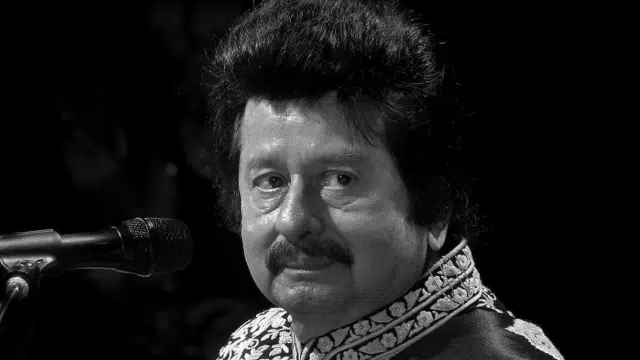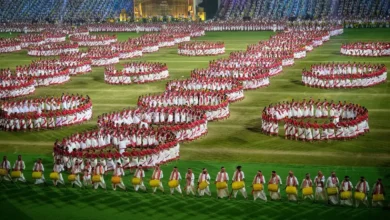Pankaj Udhas, the Soulful Voice behind the Melodic Ghazals, Passes Away at 72

“Legendary Ghazal Maestro Pankaj Udhas Bids Farewell, Leaving a Void in Indian Music”
Desk Report, February 27, 2024: In a somber moment for music enthusiasts, the legendary Pankaj Udhas bid farewell to the world on Monday at Mumbai’s Breach Candy Hospital. The 72-year-old maestro, known for pouring his heart into Anand Bakshi’s lyrics in Mahesh Bhatt’s Naam (1986), succumbed to his battle with pancreatic cancer.
Survived by his older brothers Manhar and Nirmal, devoted wife Farida, and daughters Nayaab and Rewa, Udhas’s departure leaves an irreplaceable void in the realm of Indian music.
The news of his demise was shared by his daughter Nayaab through an emotional Instagram post, saying, “With a very heavy heart, we are saddened to inform you of the sad demise of Padmashri Pankaj Udhas on 26th February 2024 due to a prolonged illness.”
Condolences poured in from the highest echelons of the country, with President Droupadi Murmu and Prime Minister Narendra Modi expressing their grief. Modi reminisced, “He was a beacon of Indian music, whose melodies transcended generations. His departure leaves a void in the music world that can never be filled. Condolences to his family and admirers. Om Shanti.”
Born in 1951 in Jetpur, Gujarat, Udhas hailed from a music-loving family. His father, a farmer, played the dilruba and nurtured a deep appreciation for music in his three sons – Manhar, Nirmal, and Pankaj.
Udhas’s musical journey commenced at the age of 12 when he began learning tabla at the Sangeet Natya Akademi in Rajkot. Influenced by his elder brother Manhar, he delved into vocal classical music, ultimately moving to Mumbai to join his brother who was assisting composers Kalyanji Anandji.
Studying science at St Xavier’s, Udhas developed a fascination for ghazals, leading him to learn Urdu under the tutelage of ‘Maulvi saab.’ Before his first ghazal album, Aahat, hit the market in 1980, Udhas, along with his brothers, formed a band, Fabulous Three Brothers, performing extensively in Mumbai.
Despite facing initial rejections in the film industry, Udhas persisted, and the turning point came with Chitthi aayi hai. The song not only resonated deeply but also propelled Udhas into the limelight, carving a niche in an era dominated by stalwarts like Mehdi Hasan and Jagjit Singh.
In the early ’80s, Udhas released notable ghazal albums like Aahat and Nayaab. However, it was Chitthi aayi hai that etched his name in the annals of ghazal history. His repertoire expanded with hits like Jeeye to jeeye kaise in Saajan (1991) and Chandi jaisa rang hai tera (2001).
Beyond his musical prowess, Udhas contributed to indie pop with Ahista, leaving an indelible mark in the ’90s. In 2006, he was honored with a Padma Shri, recognizing his significant impact on Indian music.
Udhas, a fervent promoter of ghazals, established the Khazana festival and enthralled audiences worldwide until last year when he paused due to illness. In his passing, the country mourns the loss of a voice that “evoked millions of emotions,” as expressed by Yash Raj Films.
Pankaj Udhas may have left this world, but his soulful melodies will continue to resonate, a timeless legacy etched in the hearts of music aficionados.




